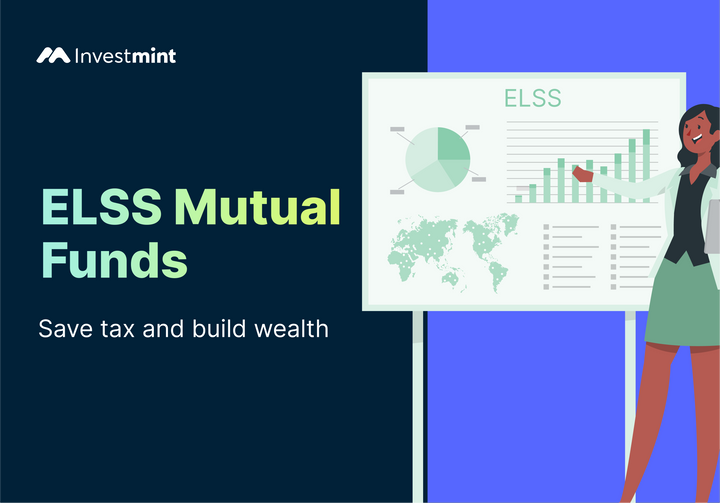The Emergence Of Sustainable Investing
Rising interest in sustainable investing, driven by ESG factors, is changing finance. It combines profit with creating an impact. Know more here.

Introduction
Growing awareness among millennials and Gen Z has turned them into sustainable investors. That is why multinational corporations like Microsoft have committed to becoming carbon-negative by 2030, to attract such investors and grow together.
Sustainable investing is changing finance. It's about both making money and doing good. Businesses that focus on sustainability are thriving. It's a new way of investing that really matters.
If you are someone who cares about nature and the environment, then you should know about this concept.
What Is Sustainable Investing?
Investors pursuing sustainable investing aim to achieve financial returns while contributing to the environment or society over the long term. Investors make better investment decisions by integrating environmental, social, and corporate governance (ESG) considerations into traditional investment approaches.
The roots of sustainable investing can be traced back several decades, with initial efforts primarily focused on negative screening. Investors would exclude companies engaged in industries such as tobacco, weapons, or fossil fuels from their portfolios. However, this approach was limited in its scope and impact. Over time, the investment landscape evolved, and the concept of sustainable investing expanded to incorporate positive screening and active engagement.
Types Of Sustainable Investment Strategies
- ESG Investing
The first strategy for sustainable investing is ESG investing. (Environmental, Social, and Governance). In addition to evaluating financial performance, it considers the environmental impact, the social practices, and the company's governance structure. Investors use ESG criteria to direct capital towards companies demonstrating sustainable practices and operating transparently.
- Impact Investing
Impact investors invest to create tangible change. A key attribute of impact investing is its emphasis on measurable positive social and environmental impacts. Instead of focusing exclusively on financial returns, impact investors actively seek opportunities aligned with their values. They fund renewable energy projects, support clean water initiatives, or promote affordable healthcare solutions.
- Socially Responsible Investing (SRI)
SRI (Socially Responsible Investing) puts a value-driven perspective on sustainable investing. Portfolios constructed under SRI guidelines are often excluded from tobacco, weapons, or unethical labour industries. By contrast, SRI investors emphasise companies that adhere to their moral compass and engage in responsible business practices.
- Thematic Investing
Thematic investing is all about understanding the bigger picture – things like new technologies, shifts in how people live and work, or changes in the population – and then investing in a way that takes advantage of these trends. This strategy identifies themes that deal with pressing global problems, like climate change or technological advancement. As investors, we can position ourselves for potential financial growth while supporting industries important to a more sustainable planet.
Impact Of Climate-Related Risks On Investment Decisions
Risks associated with climate change, like El Nio and broader impacts of climate change, are increasingly influencing investment decisions.
In recent years, companies that demonstrate environmental responsibility and sustainability in their operations tend to attract more environmentally conscious consumers. This shift can impact product demand and, subsequently, company revenues.
- Investors increasingly demand greater transparency from companies about their climate-related risks and strategies. Companies that provide thorough and reliable information about their climate-related practices are seen as better managed and more accountable.
- Then, there are transitional risks. Companies that rely heavily on fossil fuels or produce a lot of carbon emissions face challenges like new regulations that require cleaner operations, the possibility that assets linked to fossil fuels might lose value (known as stranded assets), and changing consumer preferences towards eco-friendly goods and services.
- One of the important concerns of investors - El Niño is a climate pattern that shakes up how investment decisions are made in a few key areas. El Niño, characterised by warmer ocean temperatures in the equatorial Pacific, exerts widespread impacts on industries worldwide.
- El Niño's ramifications affect investors across different sectors, from food retail to infrastructure. Sectors like insurance, construction, and tourism grapple with extreme weather consequences, potentially influencing investments. Companies offering agricultural technology or water management solutions may thrive, while currency markets and global supply chains can be disrupted.
- ESG factors help investors evaluate a company's performance in sustainability and climate impact areas, which is why many investors consider them in their decision-making process.
Role of Technology
As technology advances, sustainable investing has gotten easier to analyse, interpret, and monitor data on the environment, society, and governance. This integration aligns investors' financial goals and sustainability objectives precisely, resulting in more effective investment decisions.
Artificial intelligence (AI) and Machine Learning (ML) are really upping the game regarding sustainable investments. They can look at historical data to predict how a company will perform regarding environmental and social responsibility in the future.
But that's not all: AI and ML can also dive into the world of public opinion. It's easy for these tools to figure out how the public feels about a company's ethical, social, and environmental practices by scanning lots of unstructured data, like social media posts.
These AI-powered algorithms help investors build a portfolio that aligns with their sustainability goals. In addition to considering risk and return tradeoffs, they consider environmental, social, and governance factors. So, it's not just about investing wisely; it's about investing with a conscience.
Role Of Financial Institutions
Financial institutions, including asset managers, pension funds, and banks, are crucial in advancing sustainable investing. Many recognise their responsibility to align their investments with long-term sustainability goals; their decisions can influence trillions of dollars. Due to this, more and more asset managers are incorporating ESG analysis into their investment processes.
In addition, stock exchanges around the world are requiring ESG reporting, so companies have to disclose their sustainability efforts. It helps investors make better decisions by increasing transparency.
Challenges In Sustainable Investing
While sustainable investing holds immense promise, it's not without challenges. One of the biggest challenges is the lack of standard ESG metrics and reporting. Investors have a hard time comparing and assessing ESG performance because there isn't consistent and comparable data.
There's also the risk of "greenwashing" - when a company exaggerates or misrepresents its ESG efforts to attract socially conscious investors. Sustainable investments are being defined and standardised by regulatory bodies and industry associations to counteract this.
Future Trends In Sustainable Investing
- Regulatory Changes and Impact on Sustainable Investing
Sustainable investing is becoming more transparent and standardised because of regulatory changes like the SFDR and the US Securities and Exchange Commission's focus on ESG disclosures.
- Investment Opportunities in Emerging ESG Themes
Global sustainability challenges continue to generate new ESG themes and investment opportunities. In addition to circular economies, biodiversity conservation, and digital inclusion, investments may be made in these areas.
- Technology and Innovation
Sustainable investing increasingly relies on technology and innovation. Investors get better at understanding ESG risks and opportunities by using data analytics and technology. At the same time, supporting green technologies through investments is crucial for encouraging eco-friendly economies and supporting sustainable development.
We're seeing a big shift in how we view finance, society, and the environment with the emergence of sustainable investing. With this concept, we are breaking from traditional thinking that profit and impact can't coexist. In the coming years, sustainable investing will reshape economies, industries, and policies.
Summary
- Millennials and Gen Z increasingly embrace sustainable investing, prompting companies like Microsoft to commit to carbon-negative goals by 2030 to attract such investors.
- Sustainable investing combines making money with doing good for the environment and society by considering environmental, social, and governance (ESG) factors in investment decisions.
- Strategies include ESG Investing, Impact Investing, Socially Responsible Investing (SRI), and Thematic Investing, all aiming to align values with financial returns.
- Impact of Climate-Related Risks: Climate change-related risks impact investment decisions, pushing for greater company transparency and accountability. Transitional risks and events like El Niño also affect various sectors.
- Advancements in technology, such as AI and ML, help investors analyse ESG data effectively. Financial institutions are crucial in advancing sustainable investing, pushing for ESG analysis and transparency.
Want to stay up-to-date with the latest market analysis and informative blogs? Click on the subscribe button below and receive the next release in your inbox.



